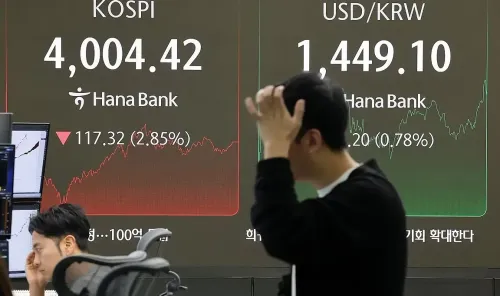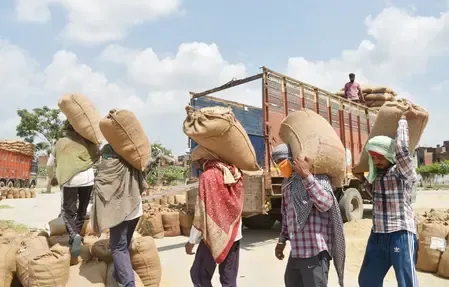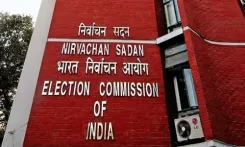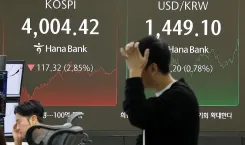How Is India Reaffirming Its Commitment to Equity, Climate Justice, and Global Solidarity?

Synopsis
Key Takeaways
- India supports inclusive leadership at CoP30.
- Equity and climate justice are central themes of India's address.
- India emphasizes the need for climate finance from developed nations.
- Discussion on trade-restrictive measures affecting developing countries.
- Commitment to a rules-based and equitable global climate framework.
New Delhi, Nov 23 (NationPress) India has conveyed its contentment regarding the substantial outcomes from CoP30, showcasing robust support for the inclusive leadership of the CoP30 Presidency and applauding several critical decisions encapsulated in a Statement at the UNFCCC CoP30 in Belem, Brazil, as per an official statement released on Sunday.
In highlighting advancements under the Global Goal on Adaptation (GGA), India emphasized the equity aspect of the decision, noting that it signifies an acknowledgment of the urgent need for adaptation in developing nations.
A fundamental aspect of India’s address was the reiteration of the long-standing responsibilities of developed nations to furnish Climate Finance.
“The Statement conveyed appreciation for the Presidency's initiatives in aiding India to embark on a long-overdue focus on Article 9.1. It stated that India earnestly hopes that, in the spirit of international cooperation, the commitments made 33 years ago in Rio would finally be honored due to the initial steps Parties have undertaken in Belem,” stated the Ministry of Environment, Forest and Climate Change.
India expressed gratitude to the Presidency for facilitating discussions regarding Unilateral Trade-restrictive Climate Measures.
These measures are increasingly impacting all developing nations and contravene the principles of equity and CBDR-RC, as enshrined in the Convention and its Paris Agreement.
“The Statement emphasized that these matters cannot continue to be overlooked. The Parties have initiated a process to reverse this trend,” it continued.
Reiterating India’s principled stance on climate action, the Statement underscored the necessity to ensure that the burden of Climate Change Mitigation does not fall upon those who bear the least responsibility for the crisis.
It was stressed that greater global support for vulnerable populations, the majority of whom are situated in the global South, is essential for them to shield themselves from the intensifying consequences of climate change.
“India reaffirmed its steadfast commitment to science-based and equitable climate action. It was noted that India remains dedicated to a global framework that is rules-based, fair, and respectful of national sovereignty. Furthermore, the nation is committed to collaborating with all Parties to guarantee that climate ambition is inclusive, just, and equitable,” the ministry added.









